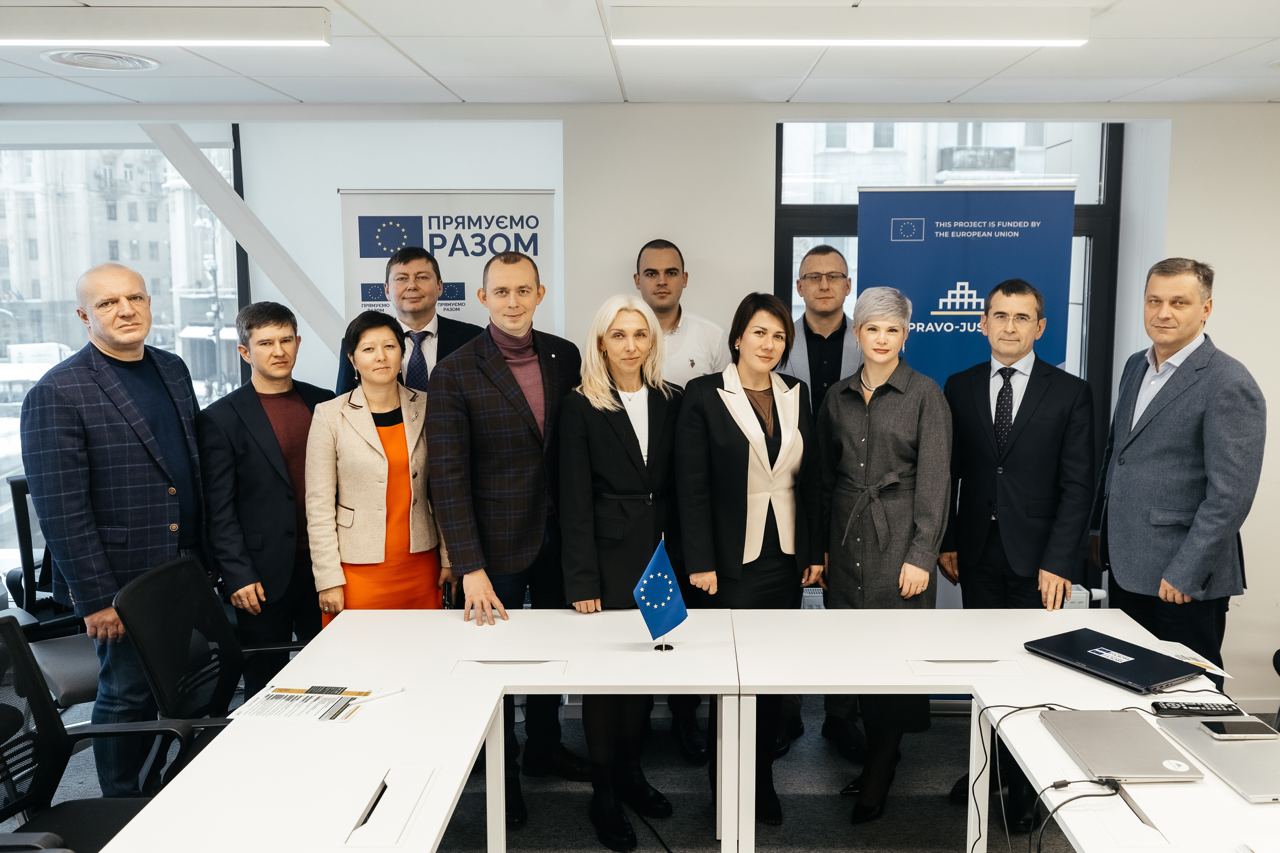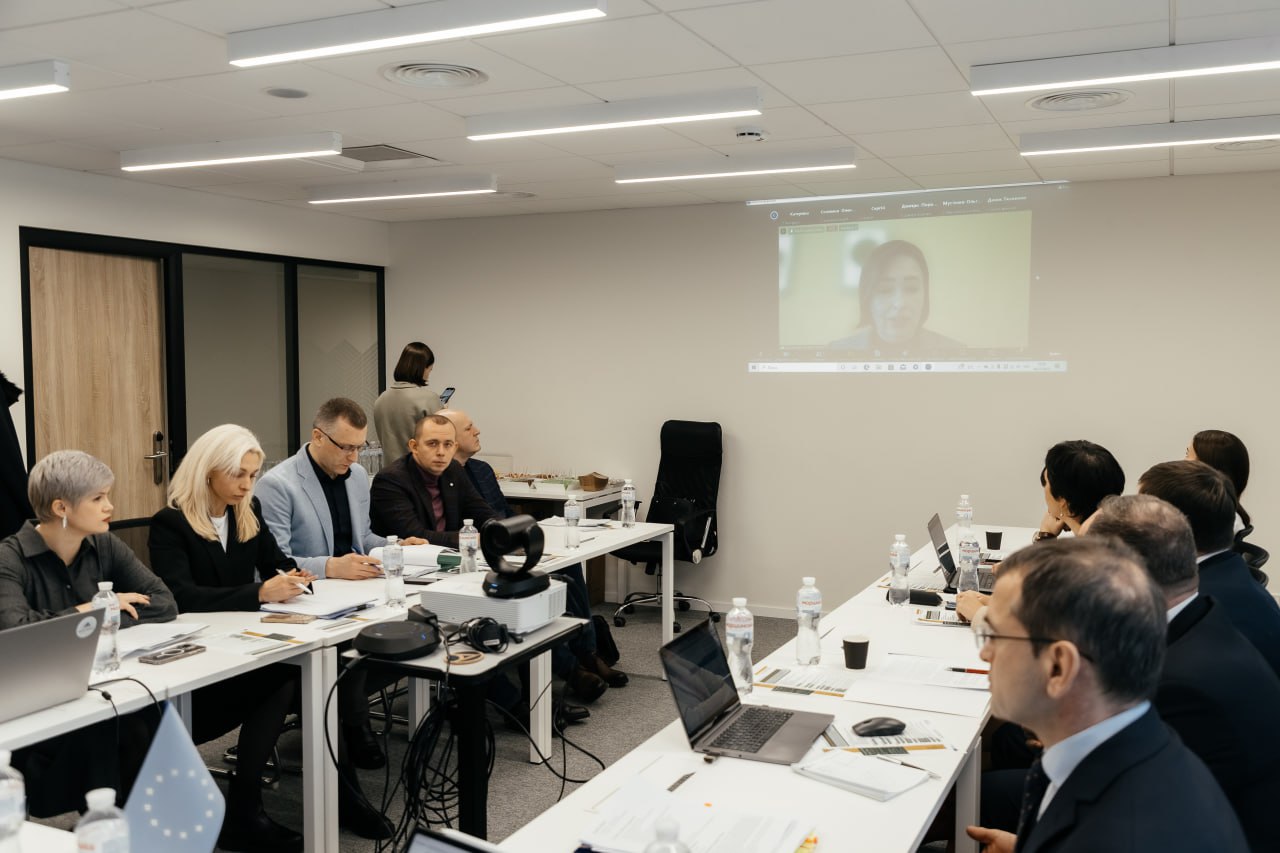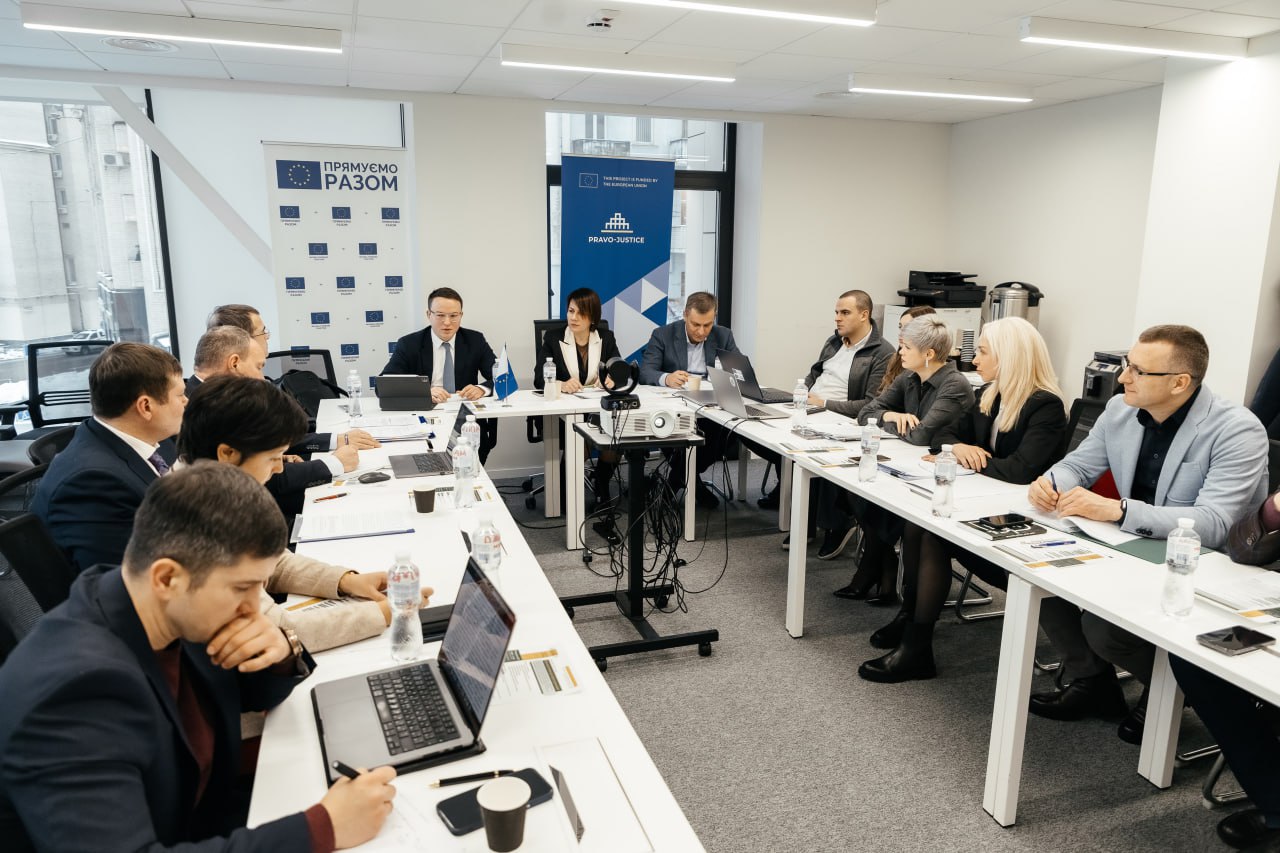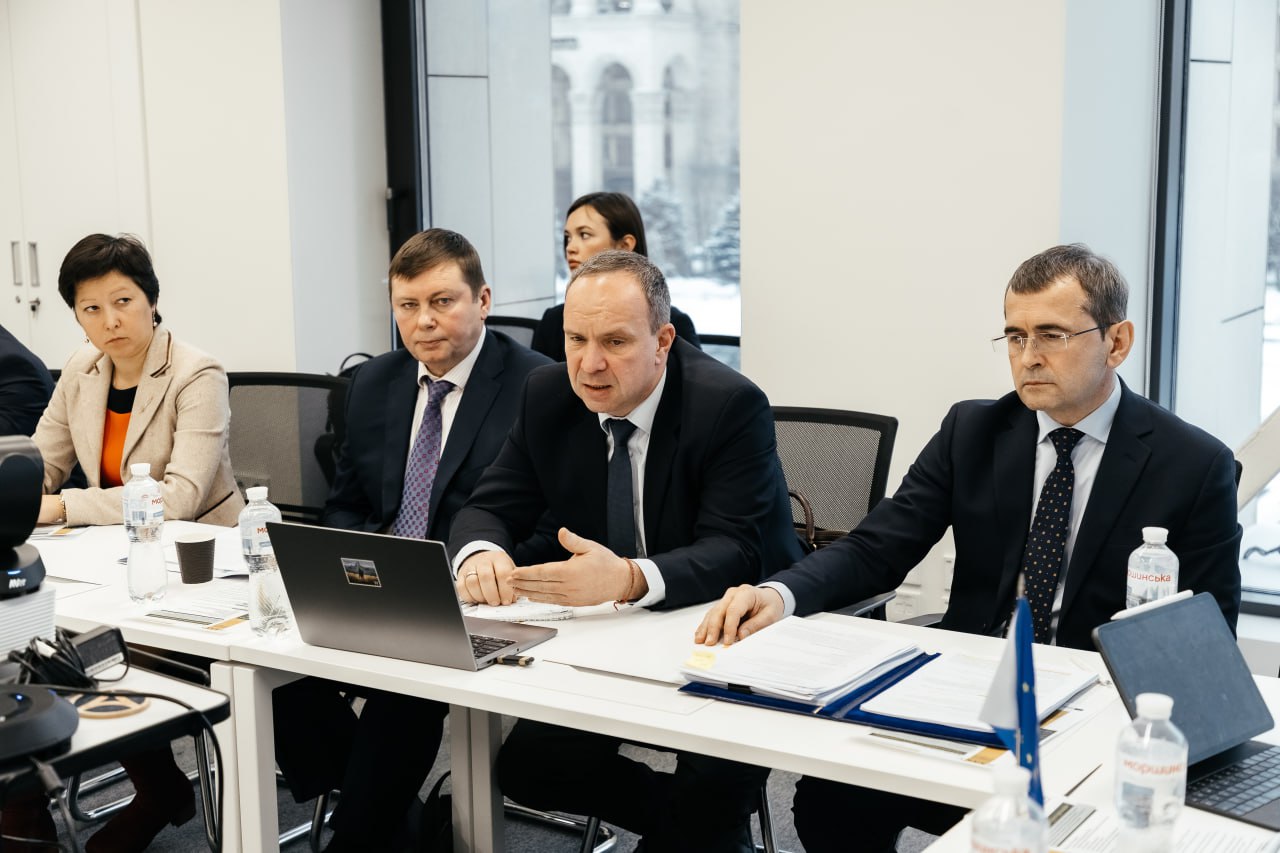Round Table on Preventive Restructuring Was Held with the Support of EU Project Pravo-Justice

On December 8, with the support of EU Project Pravo-Justice, the Ukrainian National Insolvency Trustees Association held a round table on preventive restructuring. The event was dedicated to the discussion of draft law No. 10143, which provided for the implementation of the provisions of Directive 2019/1023 on preventive restructuring into national legislation and the introduction of relevant changes to the Code of Ukraine on Bankruptcy Procedures. Streamlining the regimes of corporate bankruptcy and individual insolvency in accordance with the principles of the Directive is one of the conditions set in the Ukraine – EU Memorandum on macro-financial assistance.
Ukrainian MPs, representatives of the Ministry of Justice of Ukraine, justices of the Supreme Court, BTs, representatives of the Association of PEOs and the banking community, and lawyers took part in the discussion on the provisions of the said draft law.

Iryna Zharonkina, Protection of Property Rights and Enforcement Component Lead, EU Project Pravo-Justice, spoke, in her welcoming speech, about the specifics of the implementation of Directive 2019/1023; the first results of its application in EU countries, and emphasized the need to take a balanced approach to the implementation of new procedures in the national legislation.
"The practice of EU MS, which have introduced the preventive restructuring procedure into their respective legislative system, shows that the procedure is effective if the risks of insolvency are identified in time. This system of measures is of great importance," said Iryna Zharonkina.
Oleksandr Bondarchuk, Head of the UNITA Council, addressed the participants to the round table and mentioned that the final goal of the discussion should be the development of a perfect draft law which would take into account the objective needs of all market participants while not causing harm to the real sector of economy.
"Today, Ukrainian business suffers from many problems and challenges: starting with hostilities, loss of territory, property, labor shortage, and up to the peculiarities of the tax authorities operation or blocking of goods at the border. What we do not want for sure is seeing our legislative initiatives topping up to the long list of challenges domestic businesses are facing," said Oleksandr Bondarchuk.

Oleksii Movchan, Deputy Chairman of the Committee of the Verkhovna Rada of Ukraine on Economic Policy, briefed on the time frame for the adoption of draft law No. 10143.
"I hope that we will be able to pass the draft law by the end of 2023. The document is extremely important for Ukrainian economy. It allows saving enterprises that have faced temporary financial difficulties," said Oleksii Movchan.

Vladyslav Filatov, Director of the Bankruptcy Department of the Ministry of Justice of Ukraine, drew the attention of those present to the fact that the implementation of the Directive was necessary for the State to provide businesses with effective bankruptcy prevention tools.
"Today, there are two draft laws registered before the Verkhovna Rada and providing for the implementation of the Directive – one developed by MPs (No. 10143) and one prepared by the government (No. 10228). I hope that the synergy of these two documents will allow effective implementation of preventive restructuring procedures in practice, and give companies a chance to restore their solvency," explained Vladyslav Filatov.
Yulian Khorunzhyi, co-author of draft law No. 10143, Senior Partner of Ario Law Firm JSC, took the floor to explain the differences between the pre-trial rehabilitation procedure existing in the Code and the institution of preventive restructuring.
"Preventive restructuring is not about the debtor paying and the creditor receiving 100% of funds, not at all. This tool is about clear and transparent communication between the debtor and the creditor, which should lead to the best economic result. While in case of the pre-trial rehabilitation, as practice shows, creditors would rather risk losing 100% of their money than try getting only some part of it," said Yulian Khorunzhyi.
Oleh Vaskovskyi, judge of the Cassation Economic Court, spoke about judicial practice regarding pre-trial rehabilitation and the judges’ readiness to implement the Directive on preventive restructuring, alongside the pitfalls of the discussed draft law.
"Draft law No. 10143 is indeed a working tool, being good content wise and having truly systemic provisions. It meticulously combines the provisions of substantive and procedural law. All procedures are clearly set, which will facilitate their application," said Oleh Vaskovskyi giving high appreciation to the document.
Bankruptcy trustees Yuliia Karaush, Serhii Donkov, Yevhen Ivanenko, Artur Meheria, and Olena Volyanska presented their comments and suggestions to the draft law on preventive restructuring.
"When preparing the text of the draft law for the second reading, it is necessary to provide for the possibility of applying the preventive restructuring procedure to legal entities whose assets are located in the occupied territory or the zone of active hostilities, as well as to the guarantors of the debtor. It is also advisable to see whether this mechanism should apply in the case where disputed claims of creditors exceed the claims recognized by the debtor," said Olena Volianska.
Andrii Avtorgov, Deputy Head of the APEOU, covered in his speech the issue of debtors abusing the restructuring procedures, which, in his opinion, may result in the evasion of execution of a court decision.
"My proposal is to introduce safeguards that would deter unscrupulous debtors from seeking protection from enforcement proceedings within the preventive restructuring procedure. This applies to the debtor’s property, which is already at the stage of sale," said Andrii Avtorgov.

Vasyl Hei, expert of the IBAU (Independent Bank Association of Ukraine) Committee on Legal Support of Banks’ Activities and Protection of Creditors’ Rights, voiced the opinion of the banking community regarding the implementation of norms on preventive restructuring procedures.
"It is advisable to provide that the preventive restructuring procedures apply only to the transactions that have been conducted after the entry into force of draft law No. 10143," noted Vasyl Hei.
Nataliia Tyshchenko, moderator of the event, BT, when summarizing the results of the round table, noted that the introduction of bankruptcy procedures allows bankruptcy being seen as revival and restoration of business, rather than its liquidation or destruction.